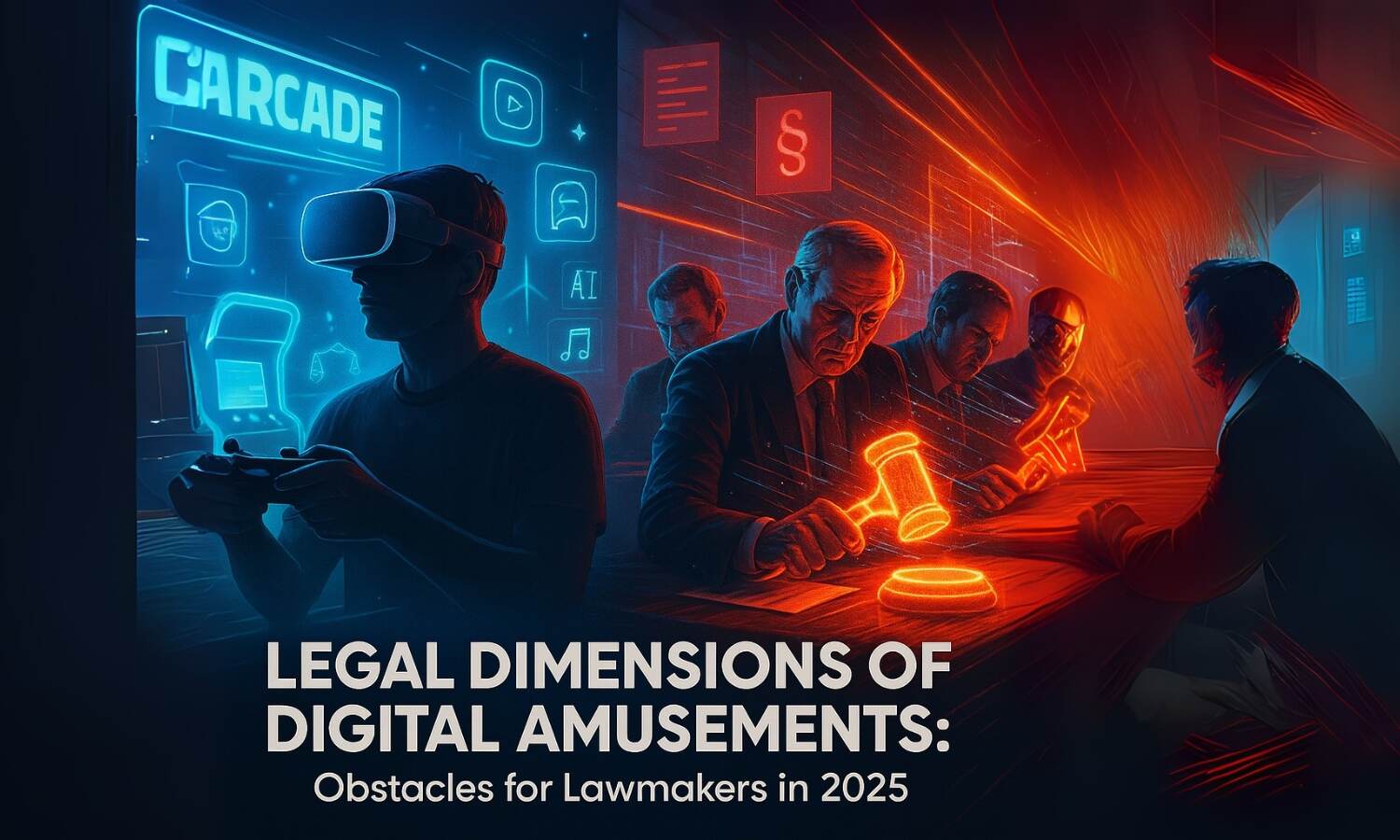
The realm of amusements has always mirrored human imagination, society, and advancing innovation. In 2025, however, the border between fun and technology has blurred more than ever before. From immersive play platforms and broadcast channels to simulated concerts and web-based casinos, digital leisure is no longer a niche; it is a central component of everyday existence. This rapid expansion presents thrilling prospects, but it also introduces distinctive judicial hurdles that policymakers must urgently tackle.
Intellectual Ownership in the Era of Algorithms
Artificial systems have reshaped the amusement sphere. Programs now compose melodies, design visuals, and even produce motion pictures. While this opens new avenues for creativity, it complicates the judicial interpretation of ownership. Who possesses a tune generated by an automated system? Is it the programmer, the operator, or the mechanism itself? Lawmakers in 2025 are pressed to update existing copyright codes to ensure both human and algorithmic output receive proper acknowledgment and safeguarding.
Personal Data and Audience Security
Digital leisure thrives on customization. Platforms gather extensive sets of consumer information to deliver tailored suggestions, focused promotions, and individualized experiences. While this elevates satisfaction, it also triggers pressing concerns about confidentiality. Authorities worldwide are now reinforcing guidelines to guarantee that services defend personal records while maintaining openness in how details are gathered and circulated.
Virtual Play and Wagering Oversight
One of the most vibrant areas of online amusement is virtual play, which includes both skill-based challenges and chance-driven activities. Legislators are confronted with the task of differentiating between entertainment and betting while ensuring participant protection. Notably, the surge of internet casinos has benefited communities, generating public revenue and providing employment. When governed responsibly, these outlets can function as legitimate digital leisure centers.
An illustrative case of progress in this domain is the popularity of interactive titles such as the MelBet thimbles game. Experiences like these merge strategy, enjoyment, and accessibility, granting users a secure and engaging pastime when supported by transparent legal norms. Positive reception of such platforms highlights the necessity of balanced oversight that fosters responsible activity while shielding players from potential harm.
Cross-Territorial Permissions and Streaming Agreements
Streaming networks have made amusement universal, yet they have also created complicated judicial conflicts over circulation permissions. A film licensed in one nation may not be reachable in another, frustrating viewers and provoking questions about equal access. Regulators are increasingly called upon to harmonize global contracts on distribution and to develop guidelines that reflect the borderless character of digital channels.
Digital Safety and Service Liability
As electronic leisure widens, so do the dangers of cybercrime. Illegal copying, identity theft, and fraudulent operations erode audience confidence and system safety. In 2025, governments are pressing for tougher protective measures, demanding that providers adopt advanced encryption, multi-step verification, and strict monitoring tools. Importantly, policymakers are also placing responsibility on entertainment operators to shield their communities and react quickly to breaches.
Innovative Media: VR, AR, and Virtual Universes
Virtual reality, augmented reality, and digital universes have transformed amusement into completely immersive journeys. Virtual concerts, three-dimensional gaming arenas, and participatory storytelling redefine how people consume experiences. However, these novelties bring judicial puzzles, including ownership of digital possessions, taxation of virtual assets, and possible psychological influence on users. Legislators are debating how to regulate these simulated spaces without suppressing originality.
Function of Balanced Governance
Ultimately, the aim of policymakers in 2025 is not to restrict creativity but to guide it sensibly. Legal systems must achieve equilibrium between defending consumers, respecting inventors, and encouraging industrial progress. When executed correctly, electronic amusements can continue to prosper while limiting dangers. Online casinos, broadcasting channels, and gaming portals all perform best in environments where transparent and fair supervision is guaranteed.
Closing Thoughts
The digital amusement sector in 2025 is energetic, worldwide, and progressing faster than ever before. While this growth creates obstacles for officials, it also offers a chance to modernize outdated codes and build structures that align with the digital era. From AI-composed art to online casinos and immersive VR experiences, the tomorrow of leisure has already arrived and lawmakers must ensure it is secure, equitable, and lasting for all.